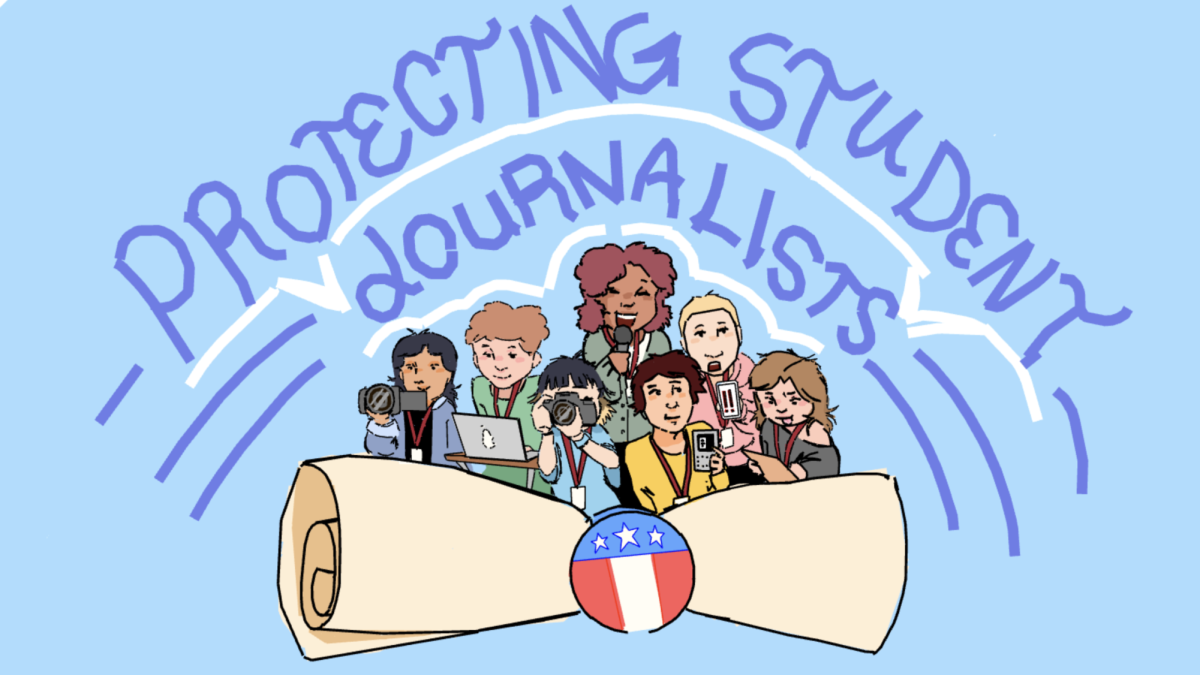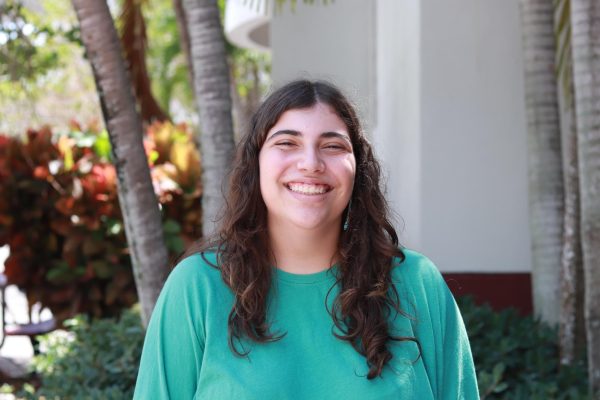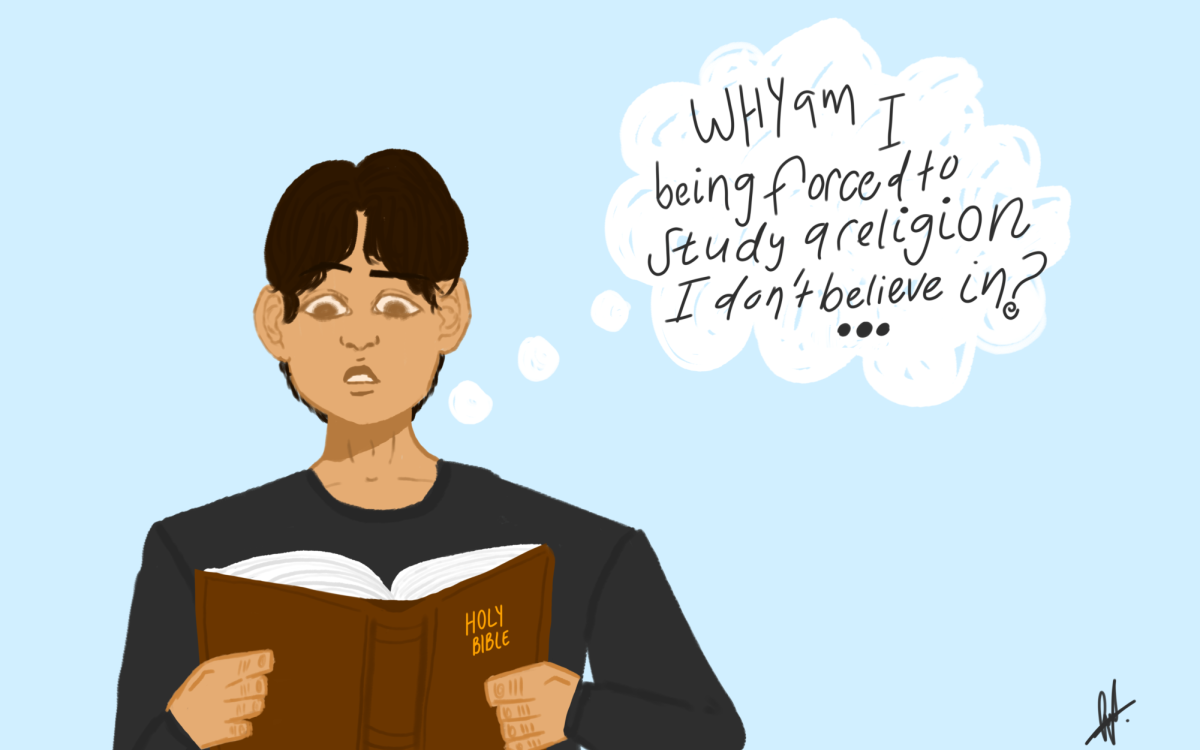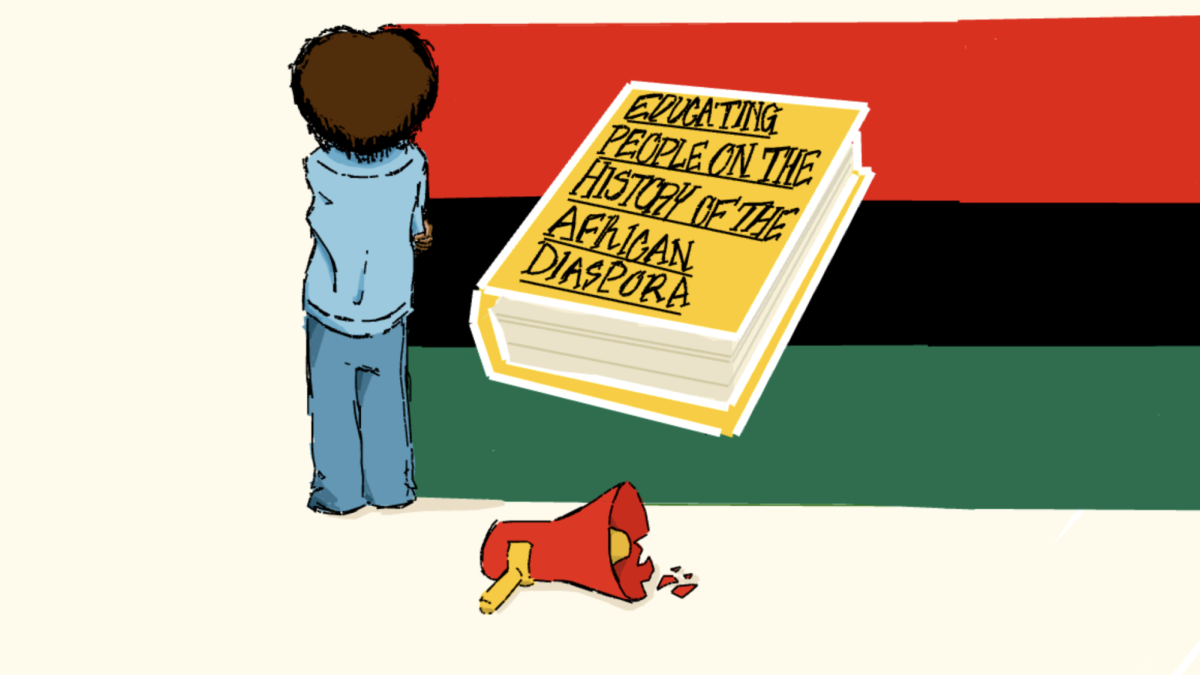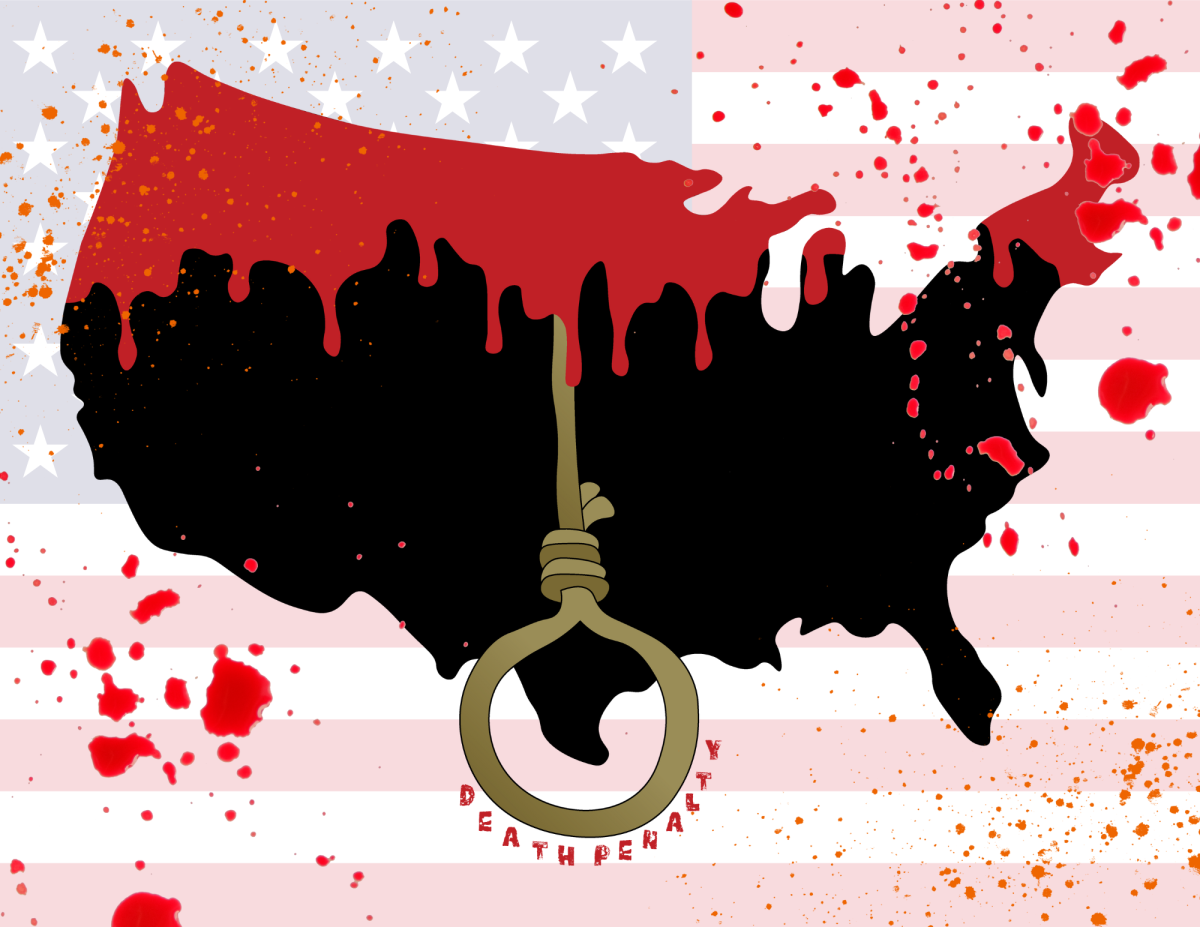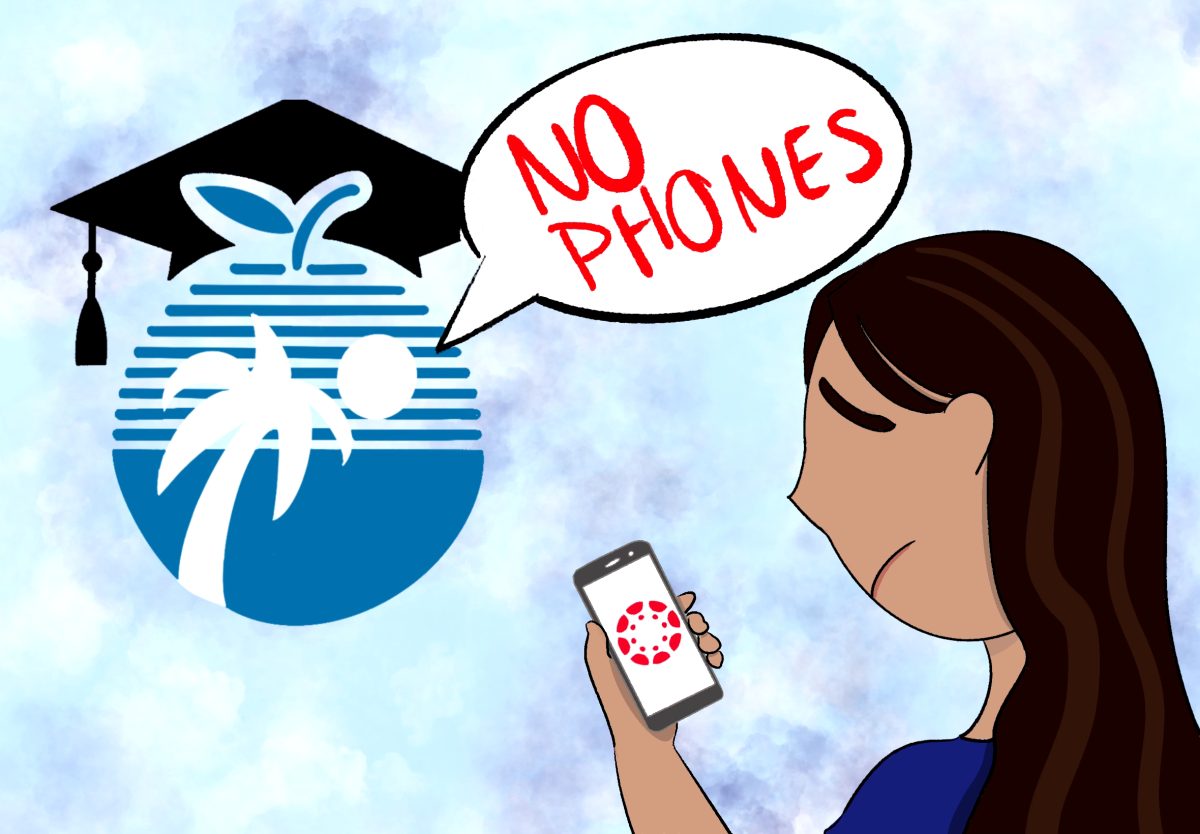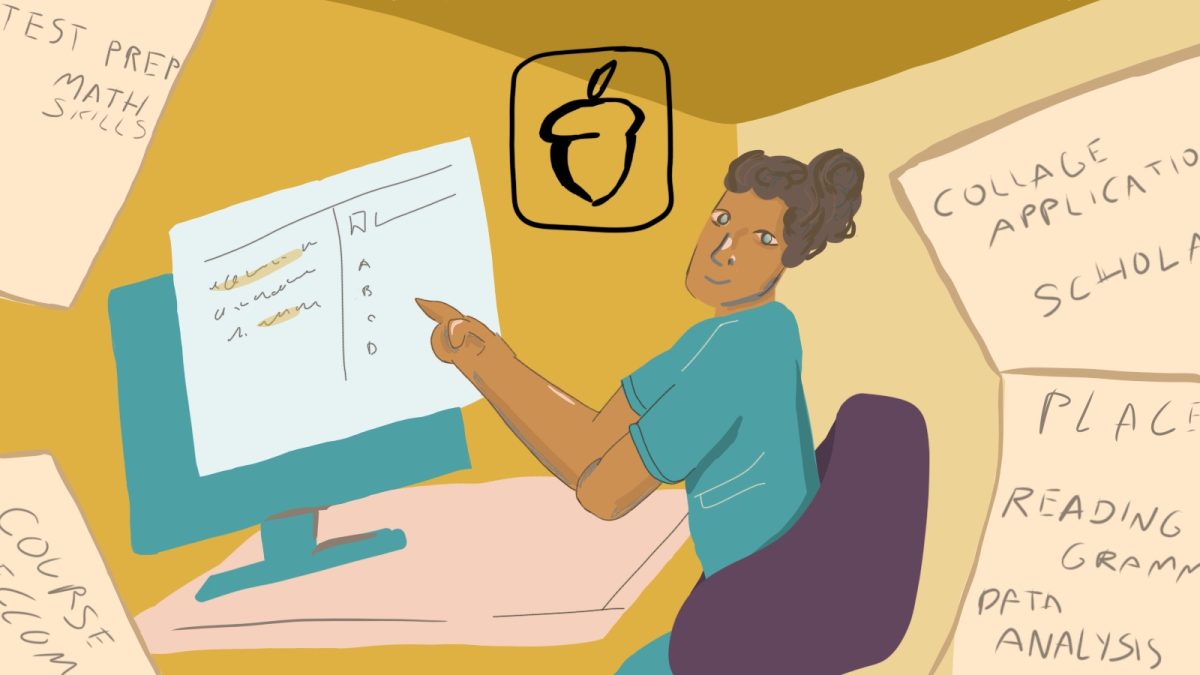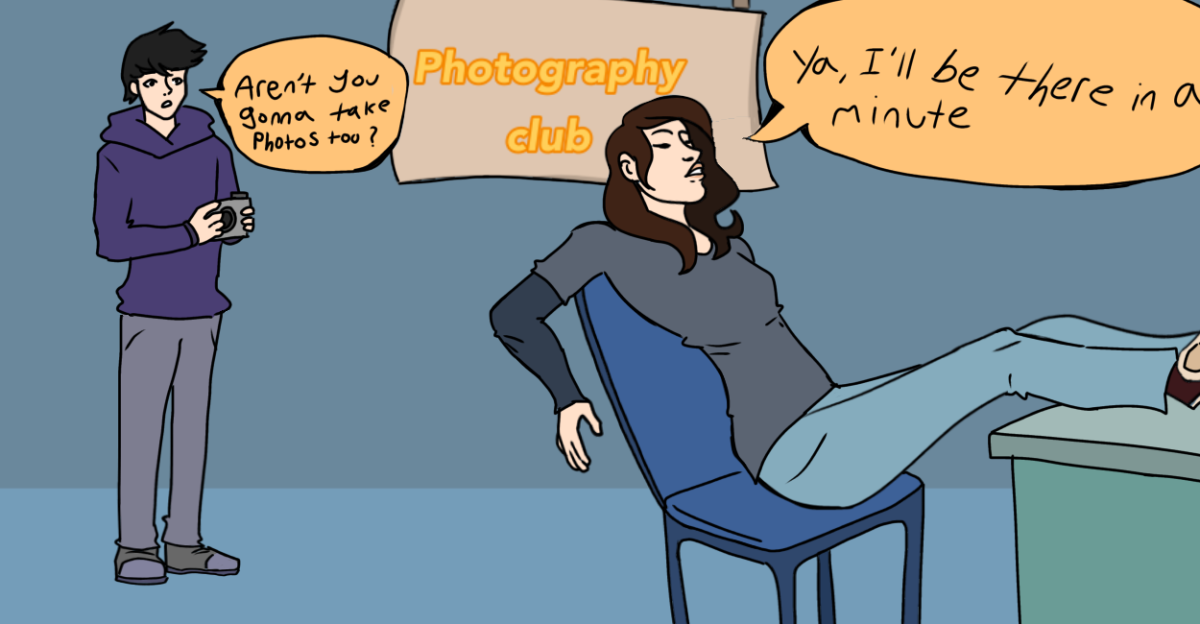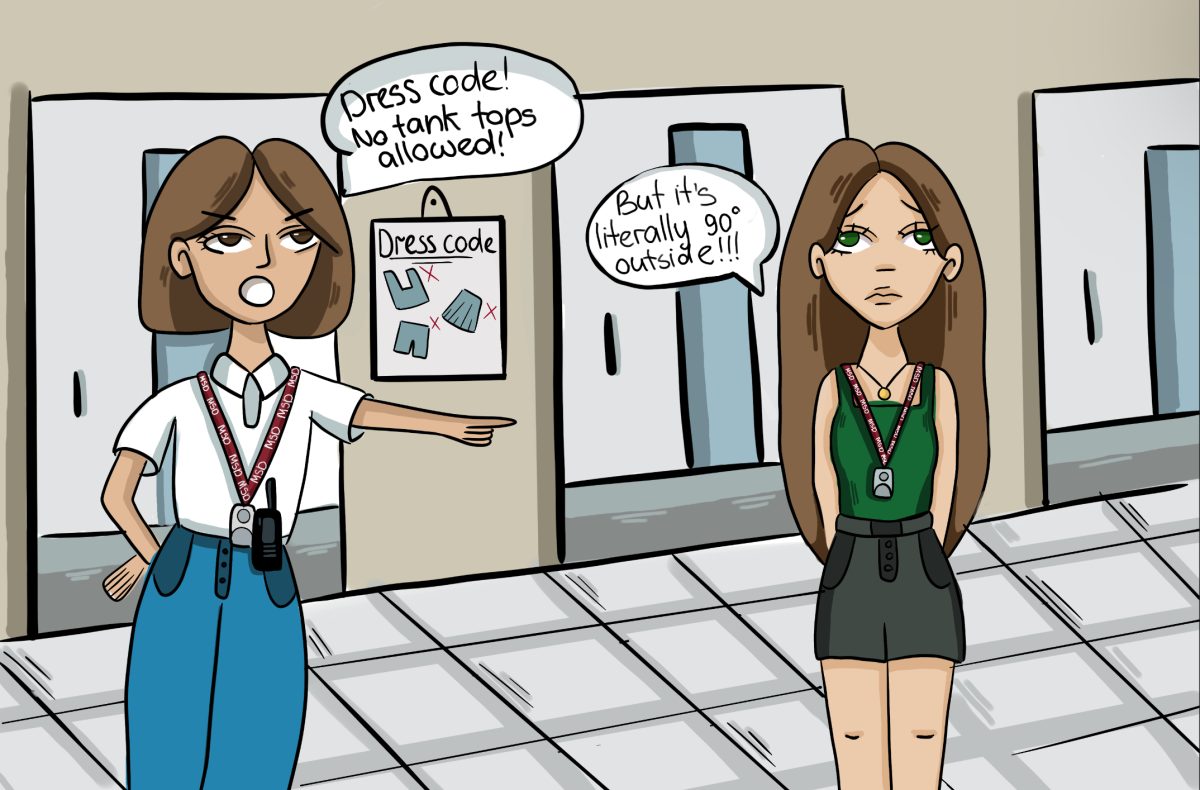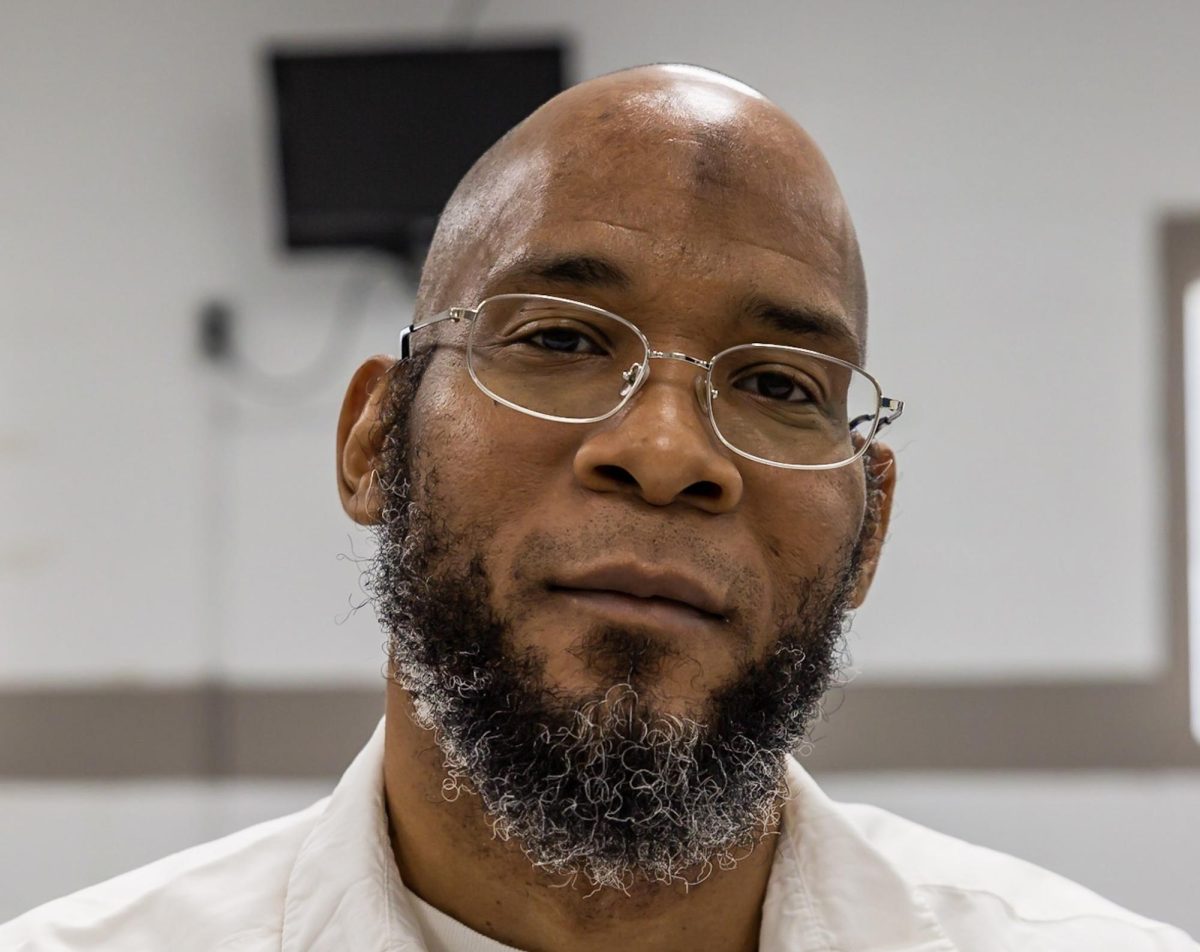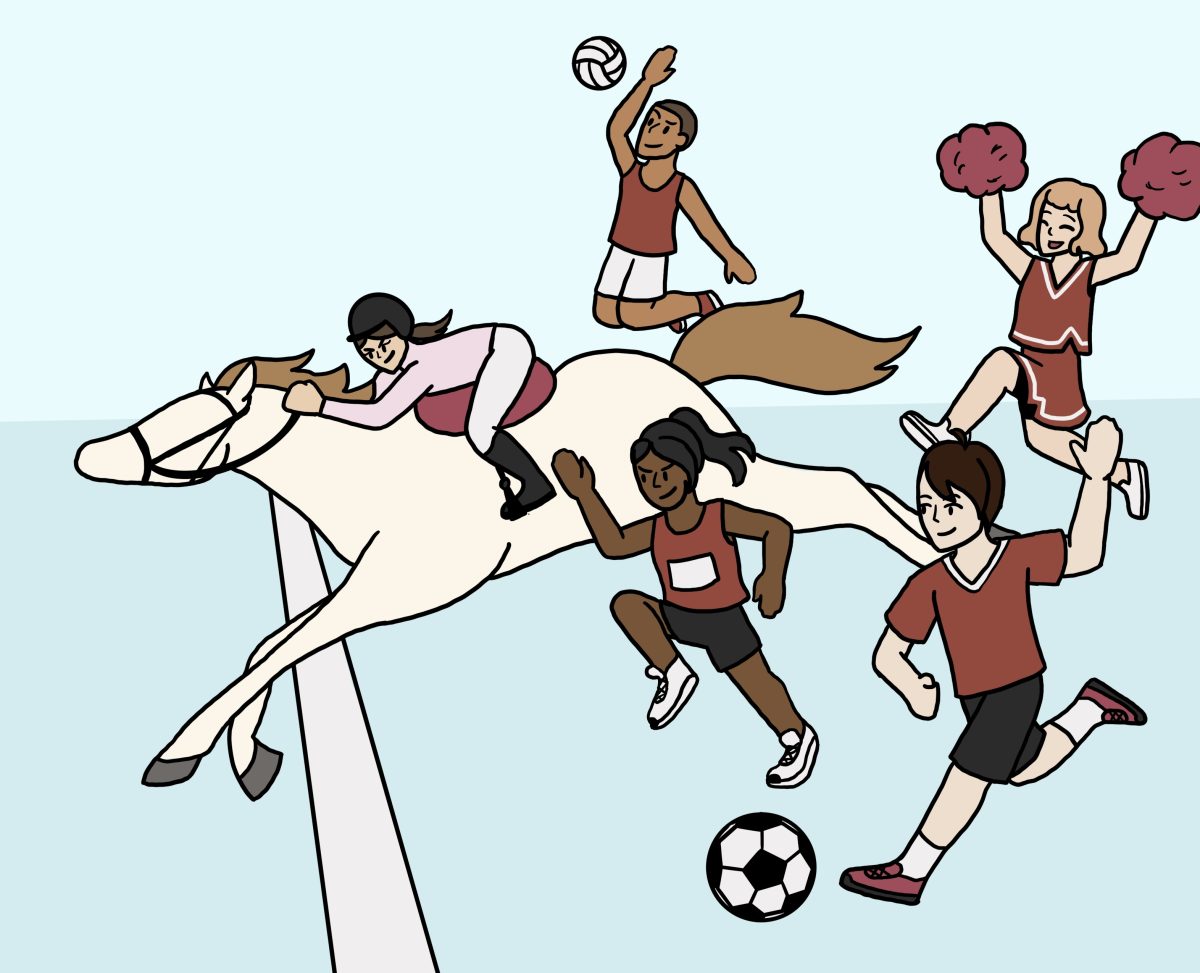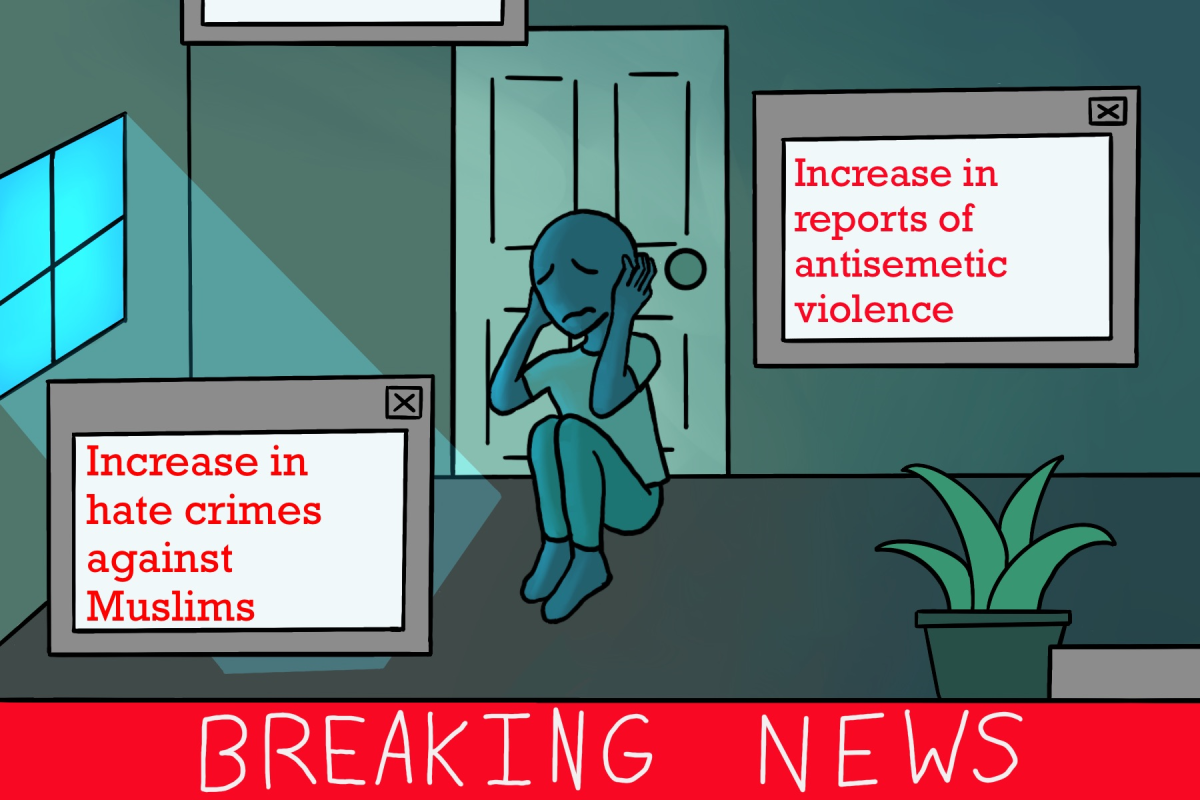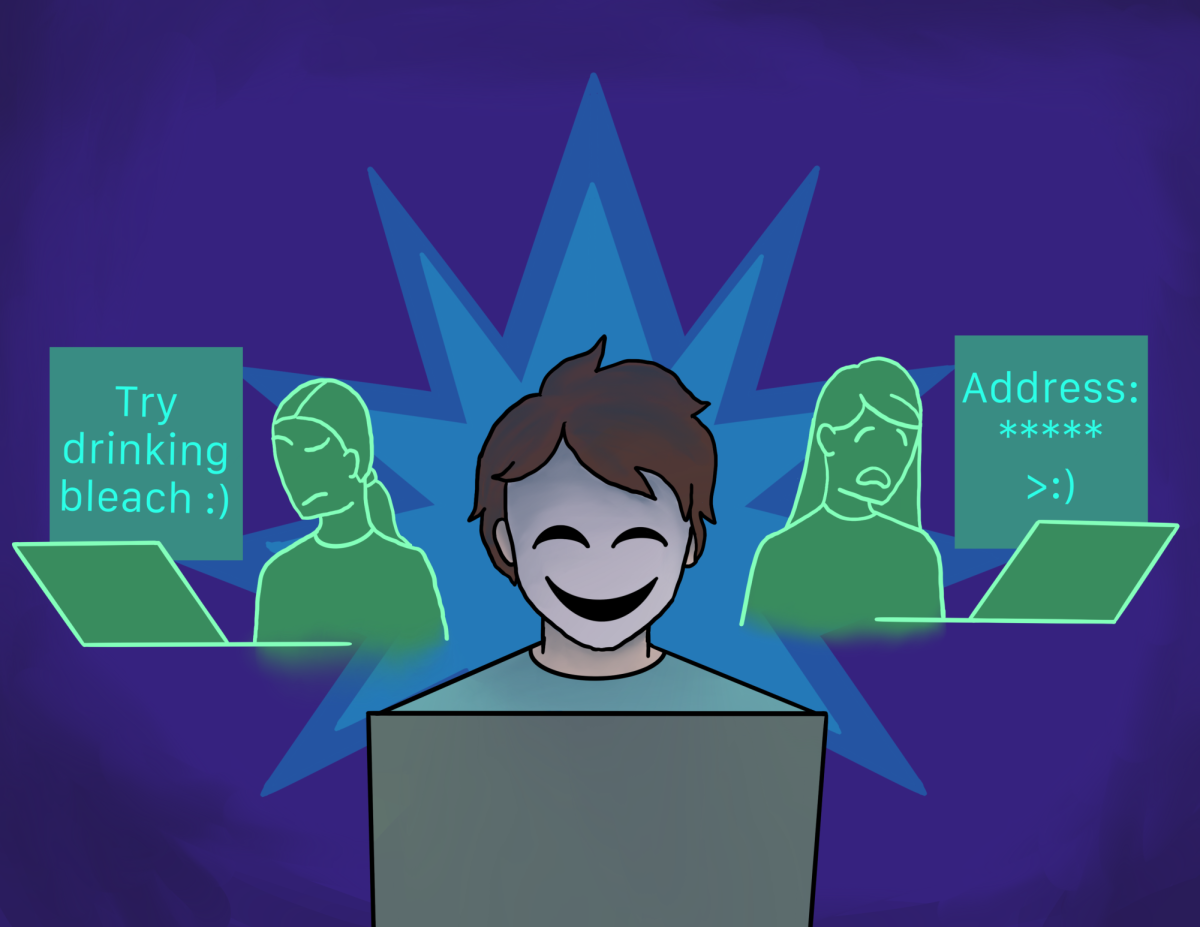In 2022, Colorado school Regis Jesuit High School administration withdrew the entirety of a print issue solely because it included a student opinion piece that was pro-abortion, then fired two of the school’s journalism advisers. In 2023, a yearbook staff that published a spread depicting gender identity and sexuality at Florida school Lyman High School faced backlash from school administrators. In 2024, California school Mountain View High School principal allegedly pressured journalism students to significantly “water down” an investigative piece on sexual harassment at school.
Each situation reverberates a single shared yet frustrating issue student journalists across the nation are subject to endure: the infringement of their free press rights. Although the First Amendment pledges every U.S. citizen the freedom of speech, young student journalists are constant targets of censorship, chiefly when exploring controversial topics in their publications. And with the recent introduction of the New Voices legislation, every U.S. state has the power to address the evident exemption some students have of the First Amendment and enshrine their inherent free speech rights into law.
New Voices, as described by the Student Press Law Center website, is a “student-powered nonpartisan grassroots movement of state-based activists who seek to protect student press freedom with state laws.” Essentially, it blocks school administrators from censoring student journalism unless it is libelous, invades others privacy or substantially disrupts school operations. The campaign derives from the John Wall New Voices Act of North Dakota, which successfully installed free press rights for student journalists back in 2015.
New Voices aims to offset the 1988 Hazelwood v. Kuhlmeier Supreme Court decision, which grants school officials the ability to censor material published by student journalists that challenge schools’ “educational mission.” The subjects which fall under the “educational mission” remain incredibly vague as the ruling failed to define it. Shamefully, this court decision has only empowered school administrations to censor students’ work under the guise of adhering to their “educational mission.”
Eighteen U.S. states have identified student press freedom as an undeniable right and have integrated New Voices legislation into state law. However, the other 32 have not, leaving thousands of public school journalism programs vulnerable to administrative repercussions for pursuing a field which, throughout the course of history, has upheld the very foundations of democracy.
Since the American Revolution, free speech has propelled the U.S. to progression. It has long prevailed as an asset to advance equality, criticize government injustices and establish a government which values and secures the natural rights of its citizens. Thus, students must be encouraged to practice a tool vital to quelling social injustice, especially when reporting on controversial topics that address a marginalized population.
Yet, when some do so, they are met with countermeasures from school authorities.
In 2022, the Grand Island Northwest Public School District unconstitutionally terminated the Grand Island Northwest High School’s student publication program because an issue featured LGBTQ+-related articles. Particularly, the school administration expressed disapproval concerning an editorial on Florida’s “Don’t Say Gay” law, a news article on the history of Pride Month and an opinion story on the “Science of Gender,” which prompted the suspension of the Viking Saga.
Similar instances have reached the collegiate level. In 2024, the Norwich University in Northfield, Vermont student publication The Guidon released a story covering an on-campus sexual assault. The story also condemned the school administration for their lack of transparency on the issue, in addition to other legal issues.
Rather than taking further measures to protect students on campus, the university chose to suspend The Guidon.
These student reporters attempted to address a substantial issue in hopes of ameliorating the conditions of those affected by exercising their press rights; this illuminates the very pillars of journalism.
However, the persistent censorship that plagues schools across the nation begs the question of how students are supposed to learn the true meaning of journalism if not even their own school, a place intended to learn without disruption, permits them to. Students cannot learn that their opinions are essential to ushering social advancement if their school constantly punishes them for it.
Student journalists are not an exception to free speech prerogatives; like adults, they have the ability to critically think and should never be punished for doing so. As these very students will be reporting on the future of the nation, all schools have an innate responsibility and expectation to preserve: to teach them how to do so in a responsible, ethical and encouraging manner.
The New Voices legislation provides the precise guidelines for protecting student opinions and journalistic integrity, while also placing constitutional restrictions.
Every single law and right embedded into the U.S. Constitution applies to every single U.S. citizen, regardless of what grade they are in or how old they are. The freedom of speech cannot be an exemption. Rather than age or grade being used to deem a young adult undeserving of a federal right, it needs to be used as an asset for school administrators to understand what actions need to be taken to help their students.
States need to protect their students under the Tinker standard, which establishes students the right to the First Amendment unless it disrupts the educational process.
There is a single solution which guarantees student journalists their connate entitlement to reporting on current issues in hopes of sparking change. There is a single solution, and it lies in states restoring student press rights by passing the New Voices legislation.
This story was originally published in the March 2025 Eagle Eye print edition.

